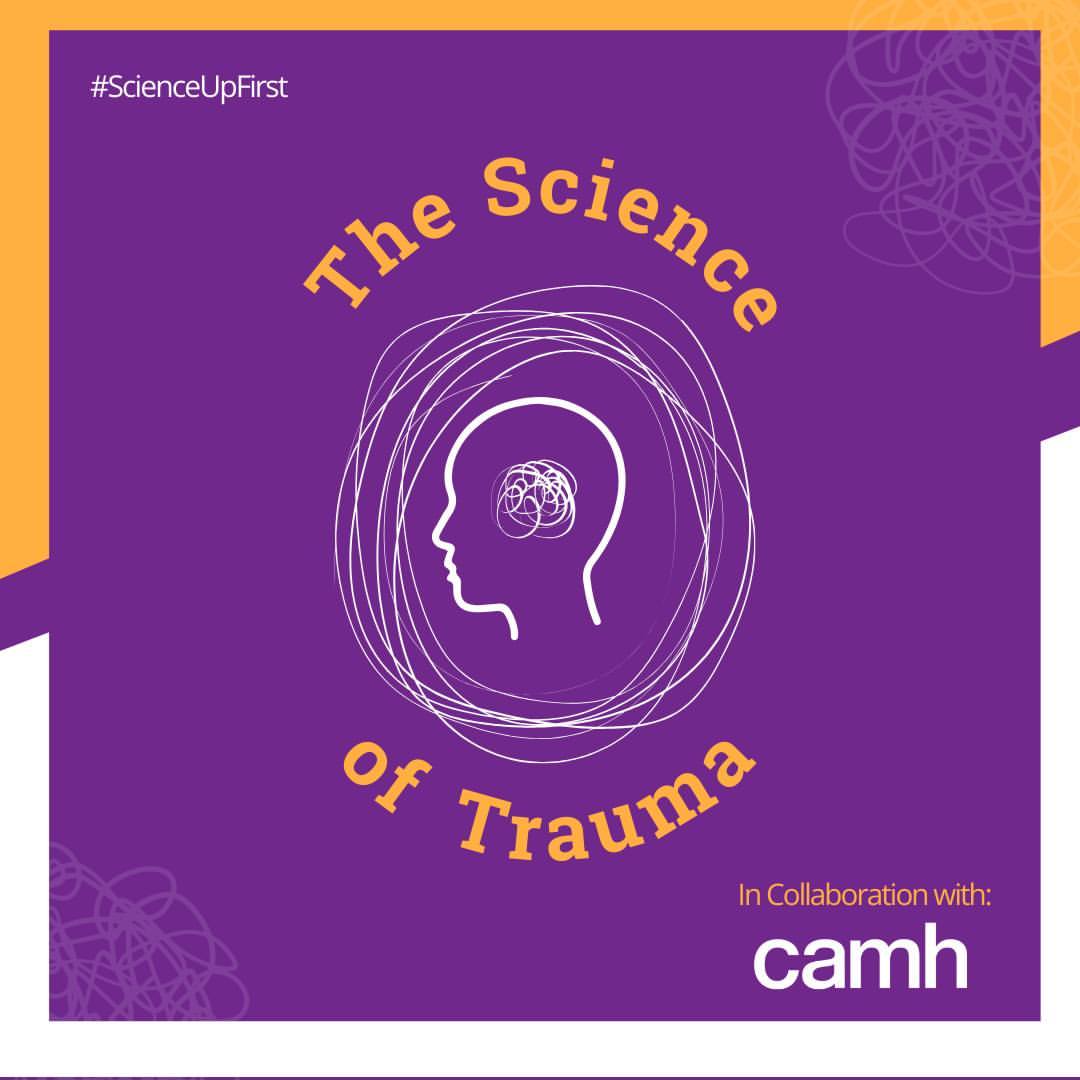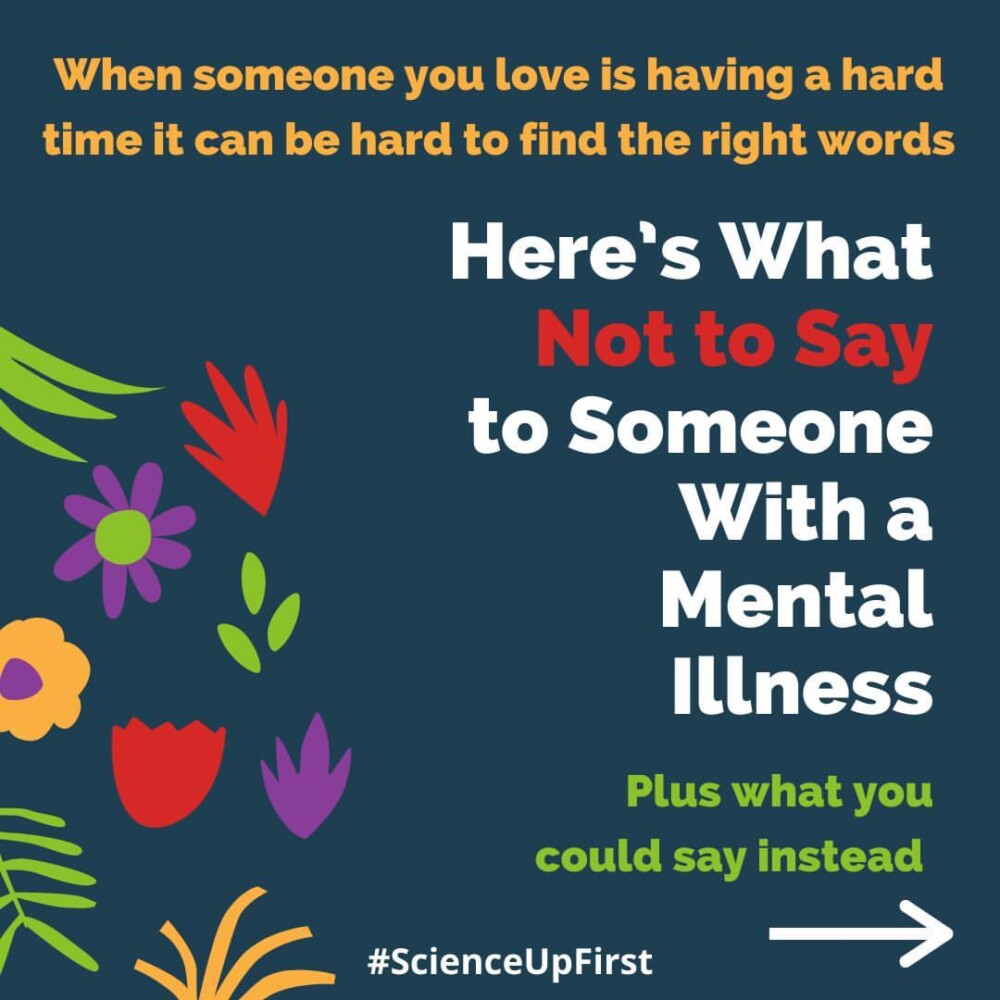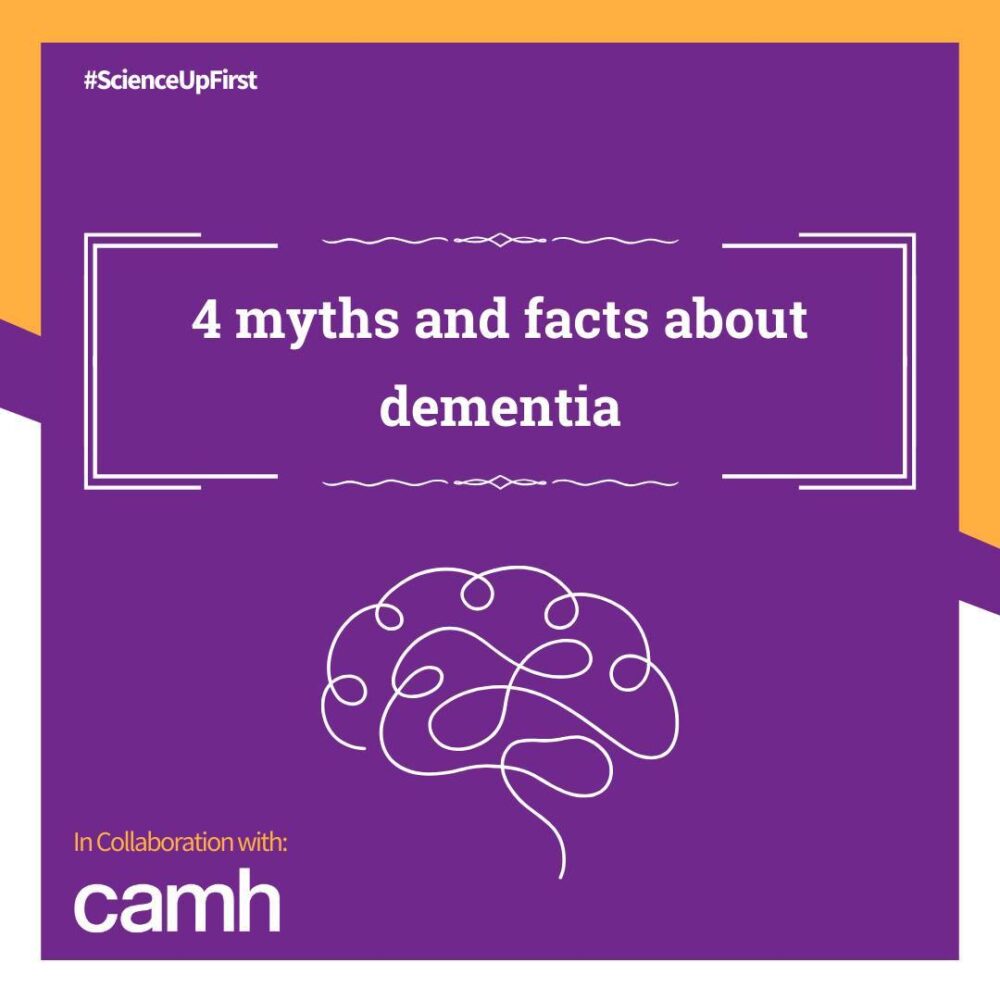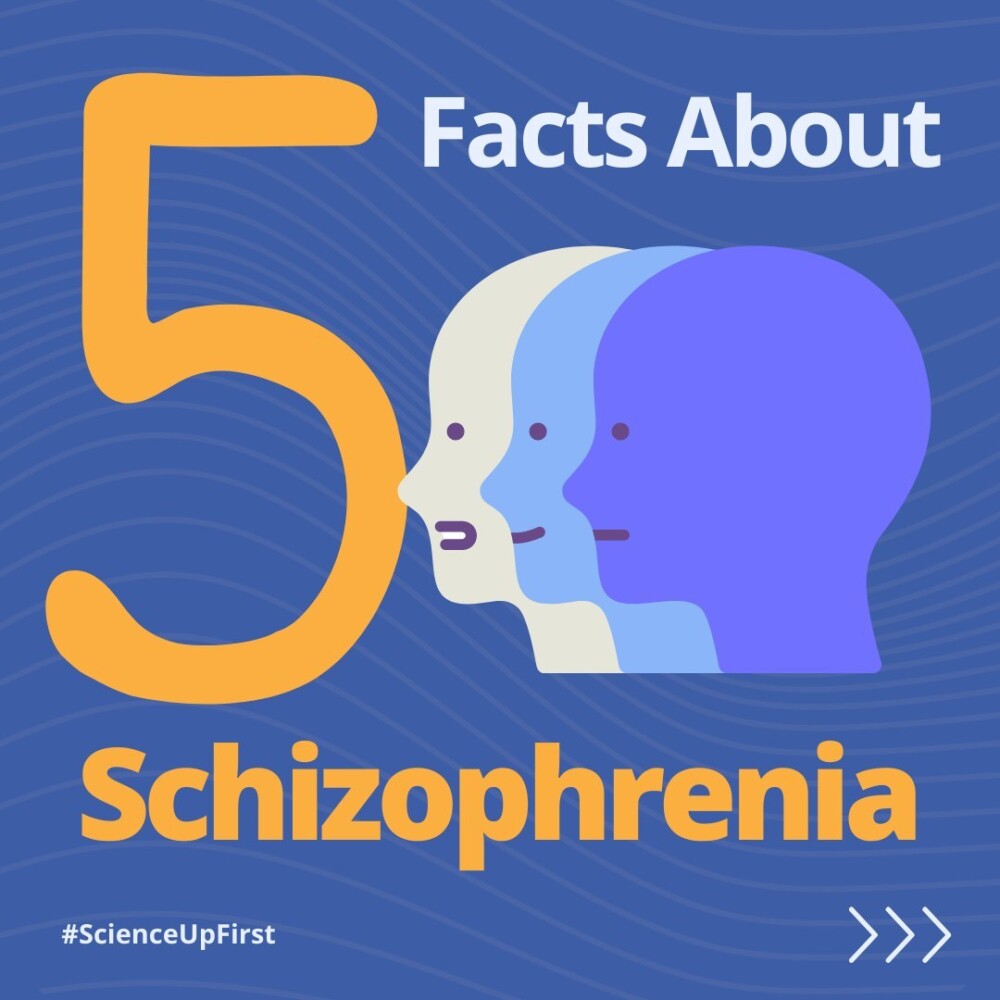Trigger Warning: Trauma
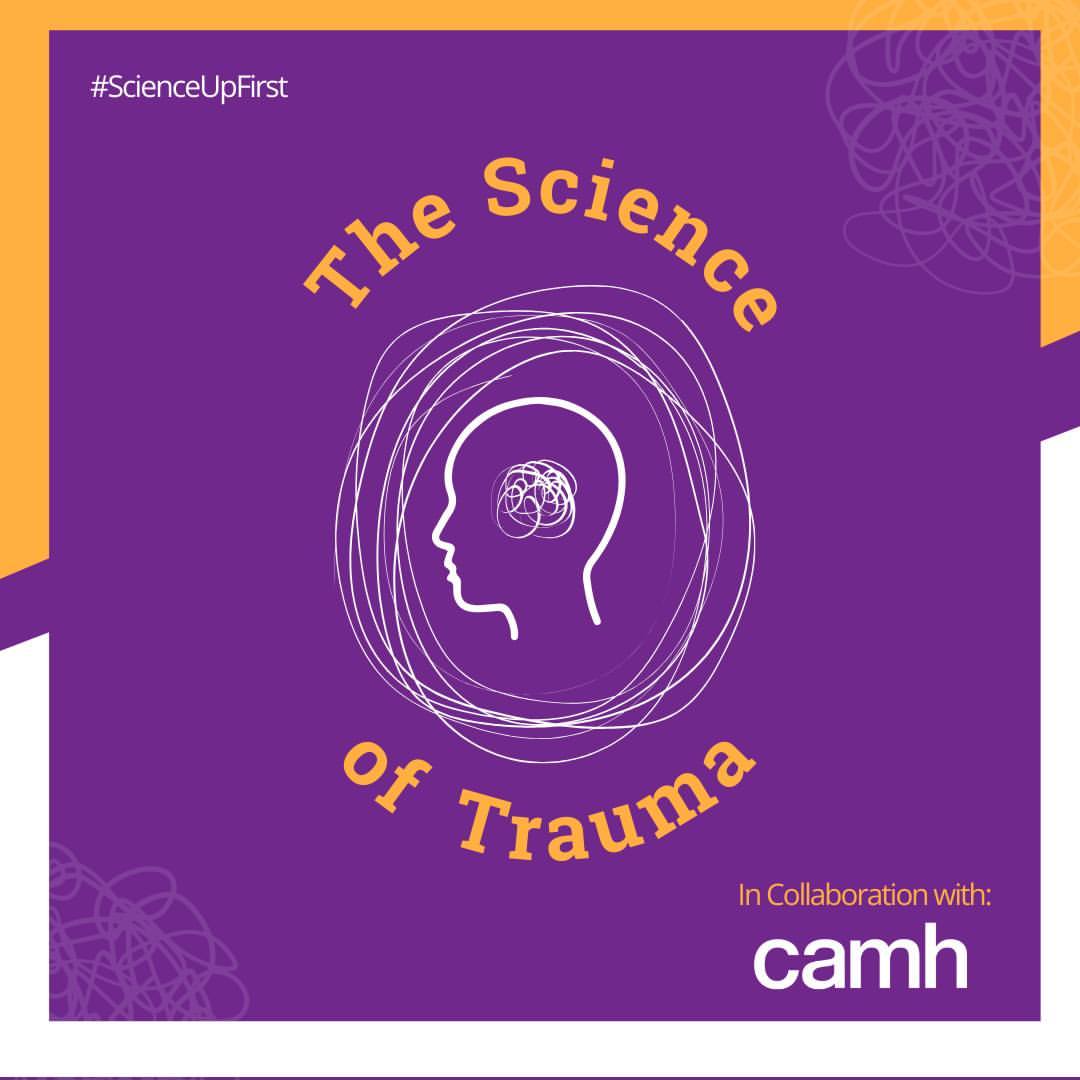
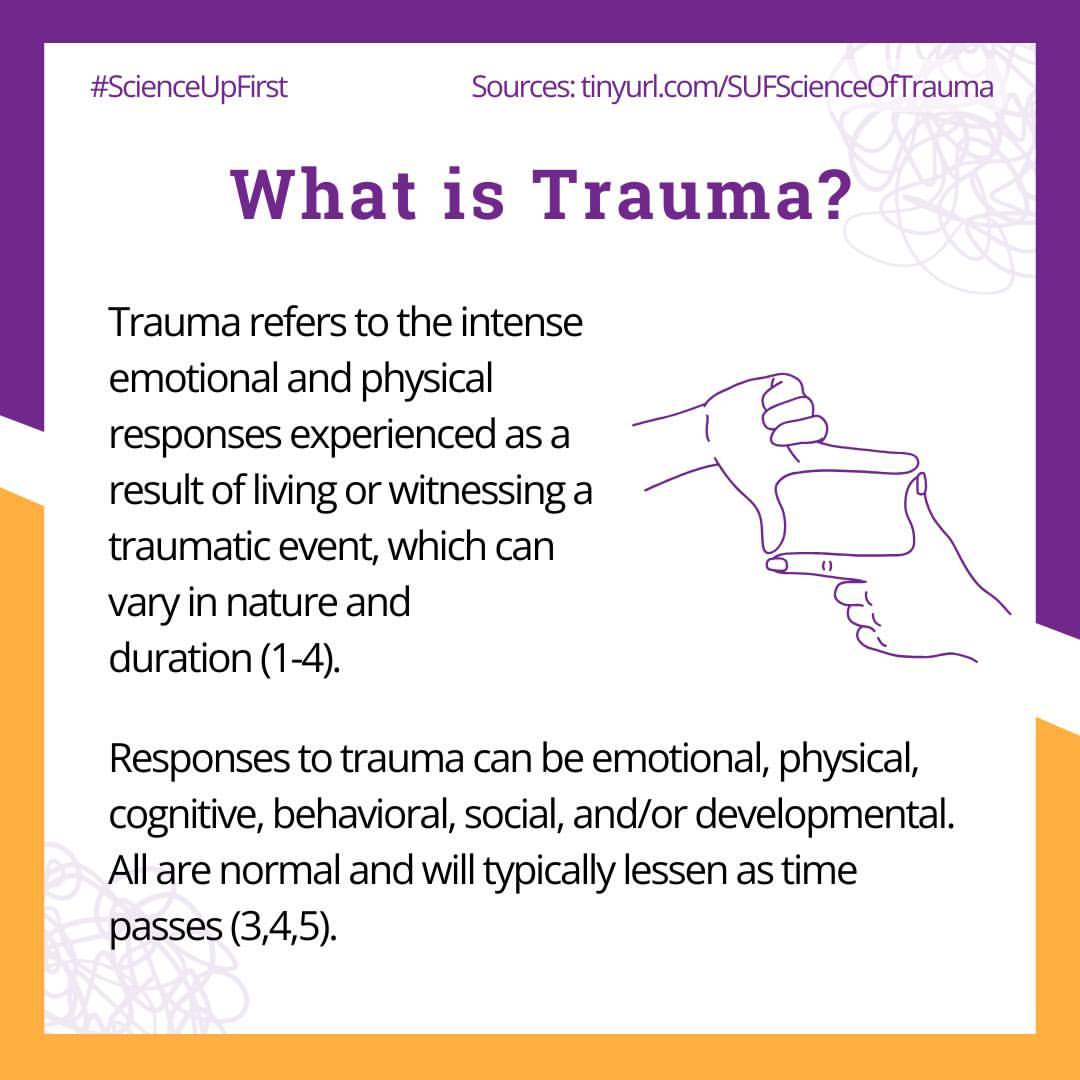
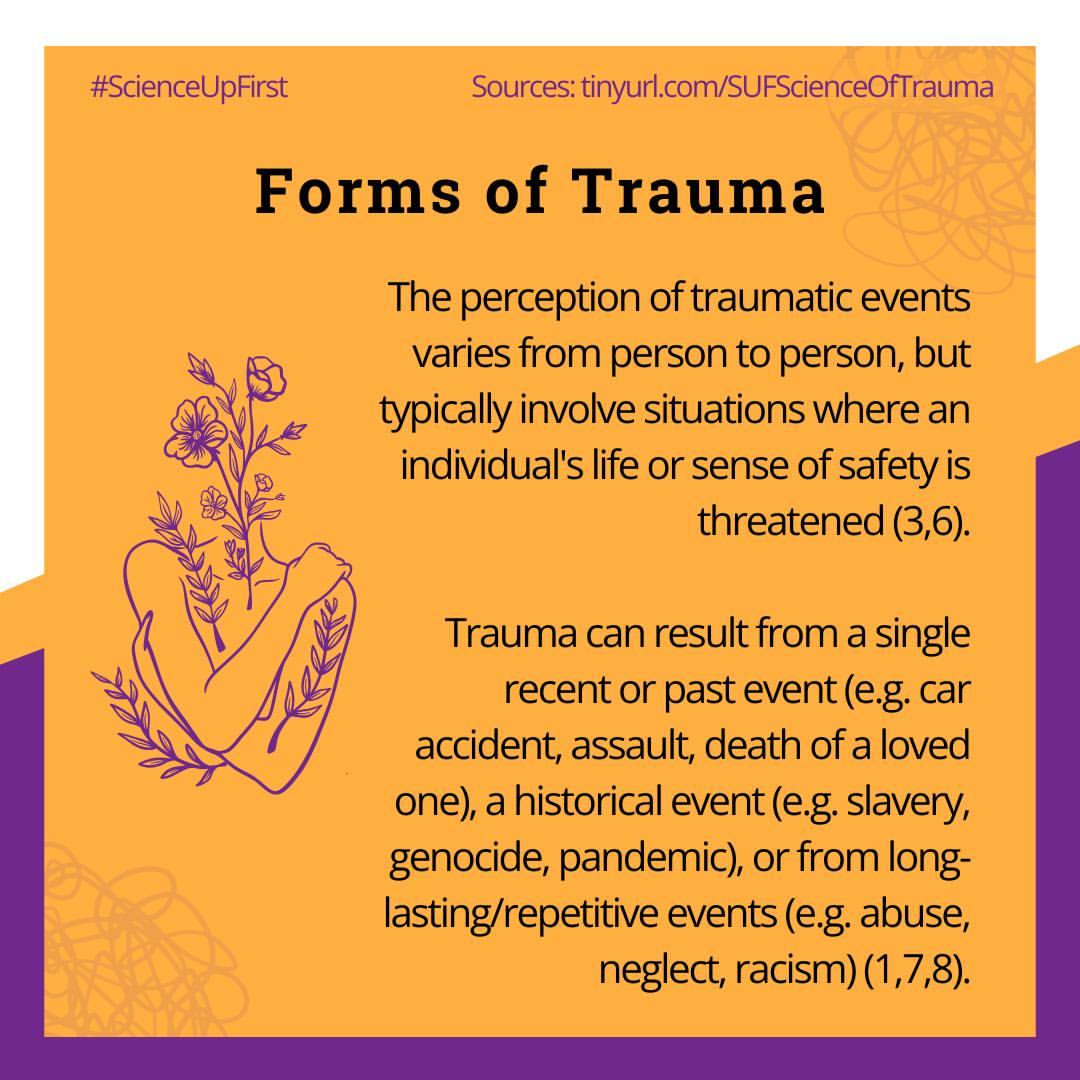
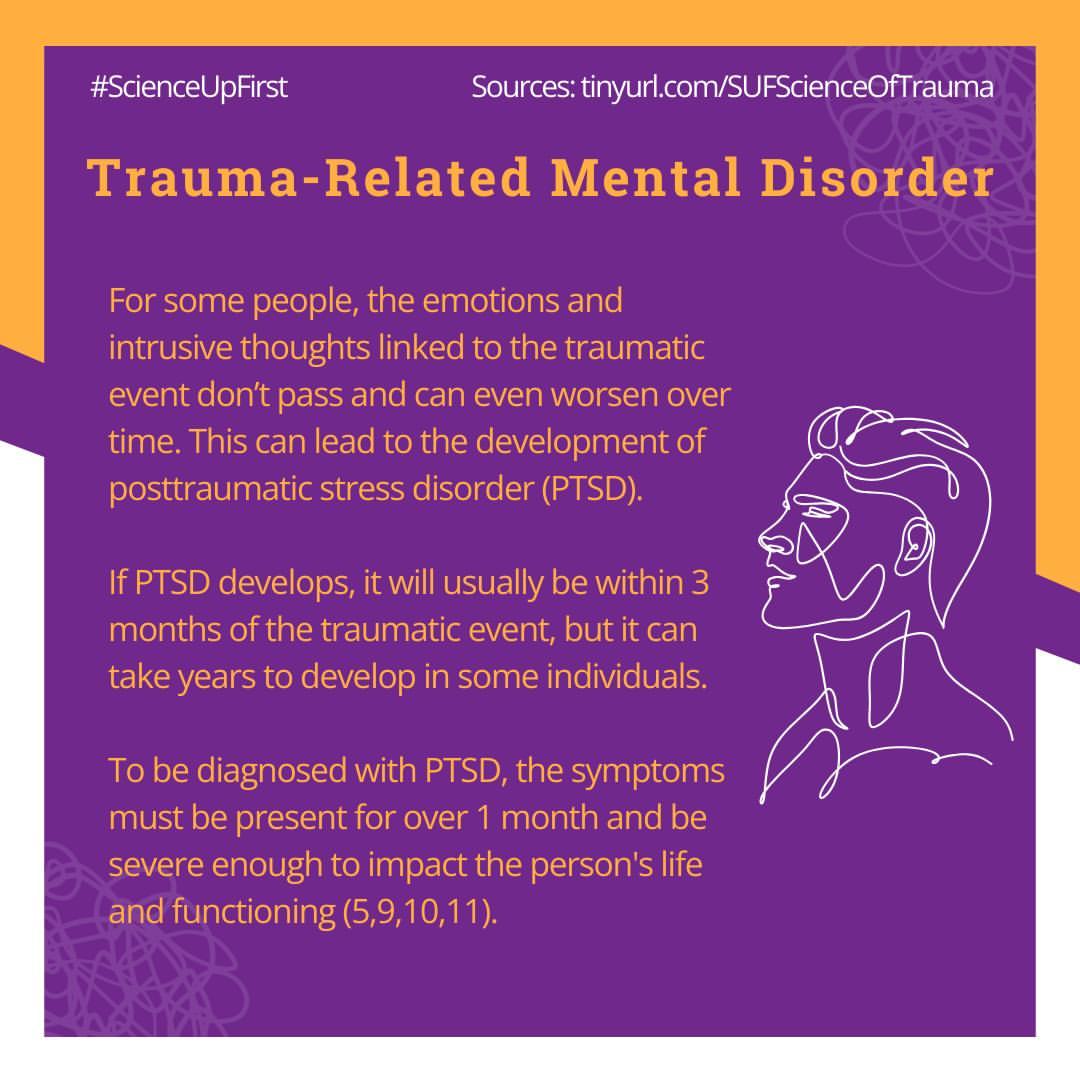
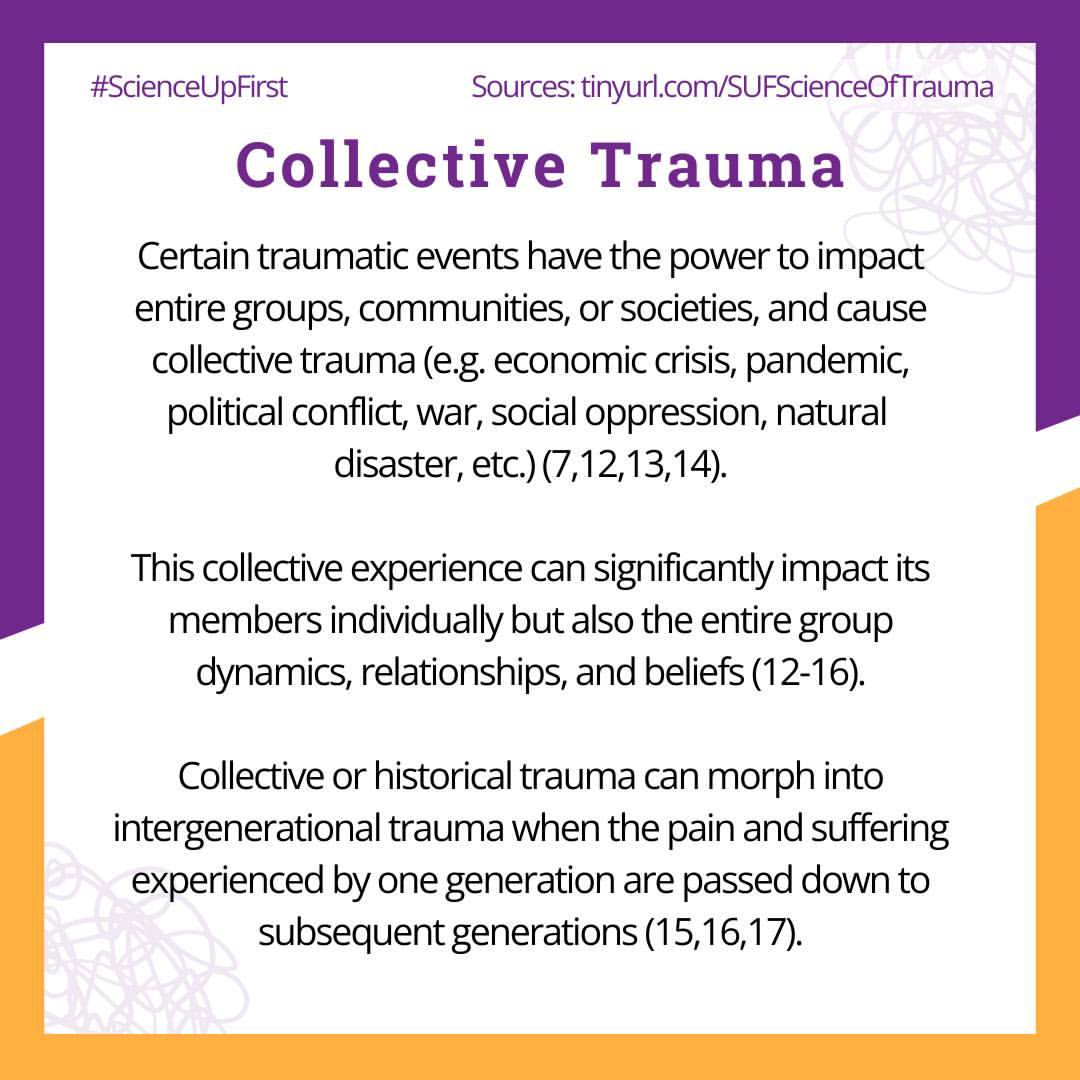
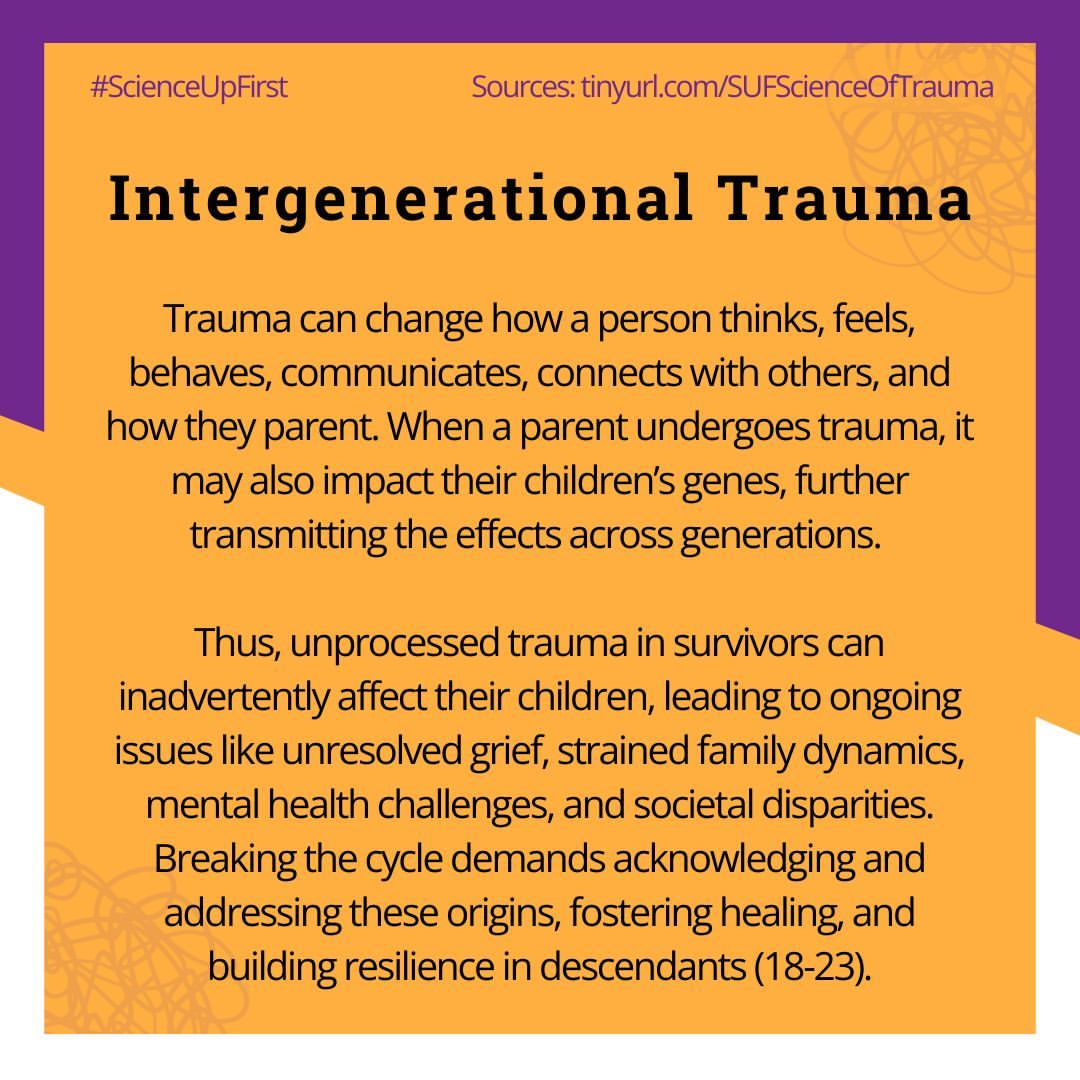
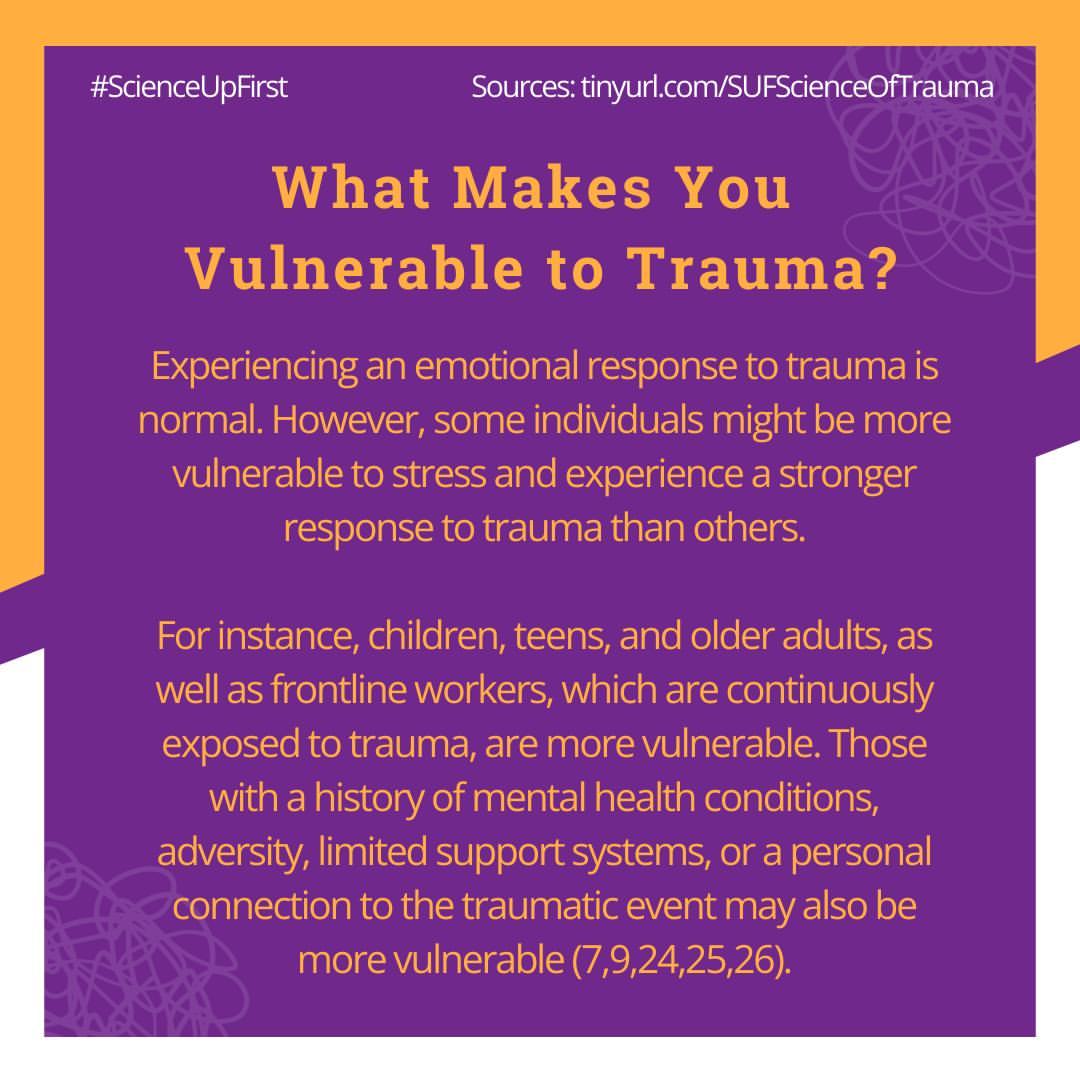
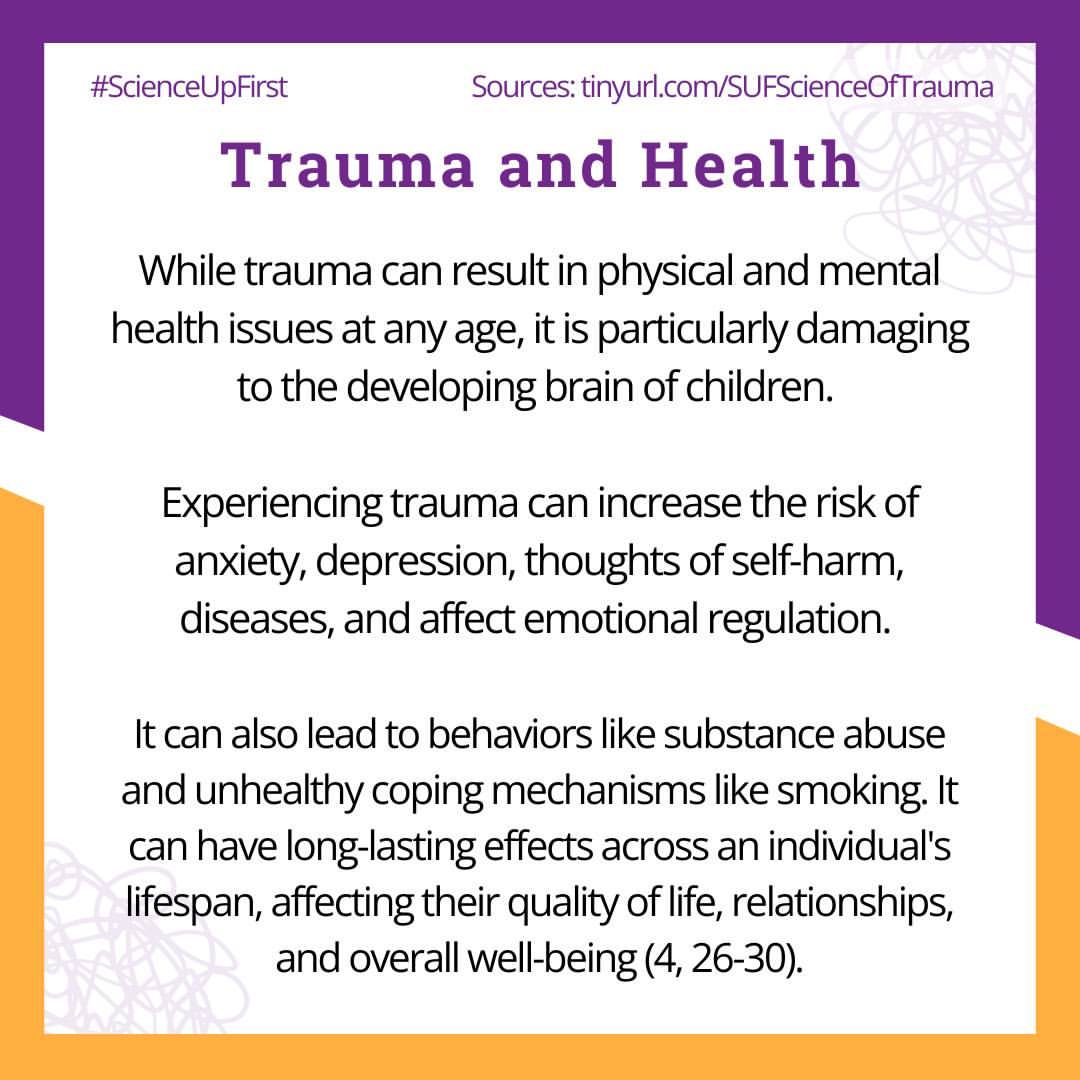
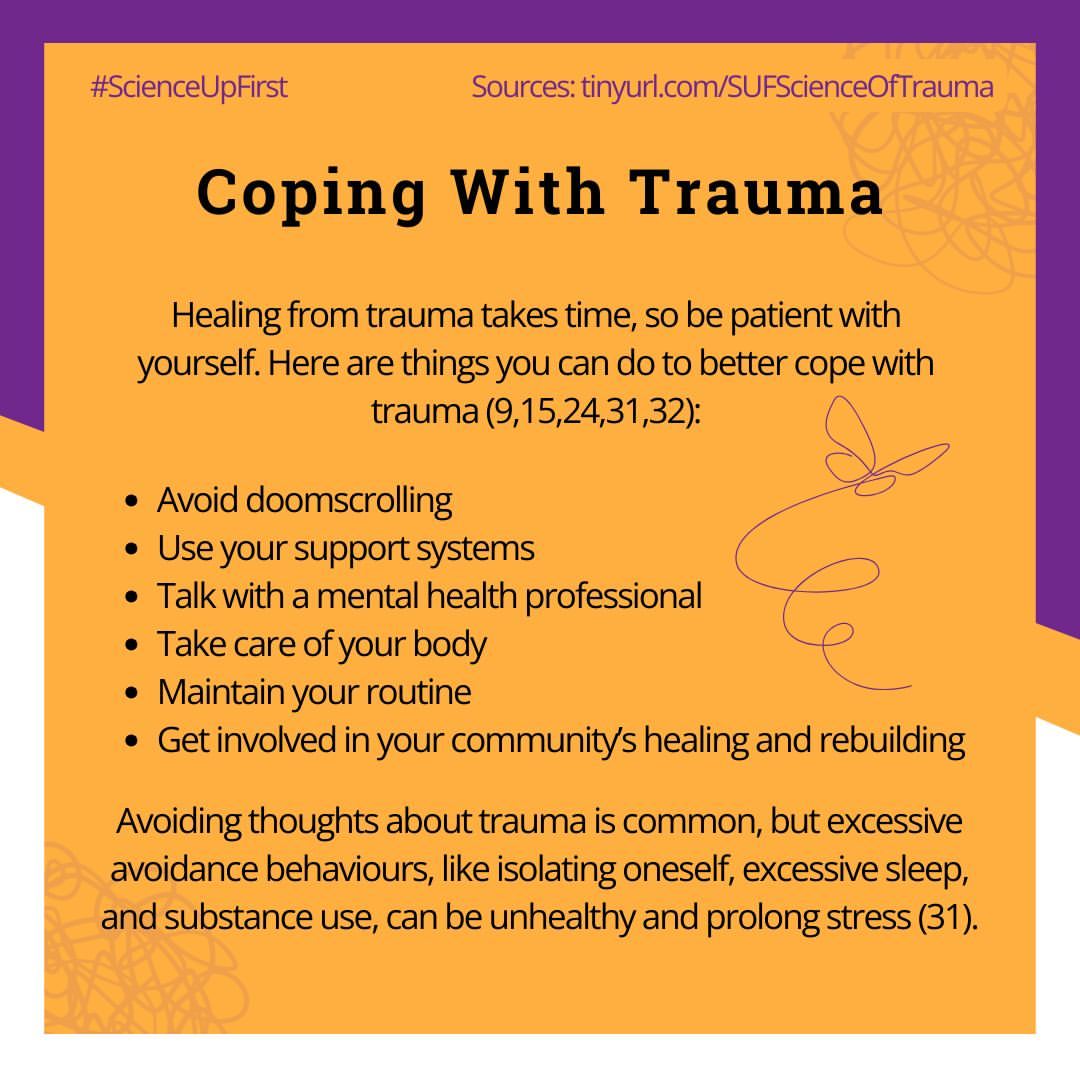
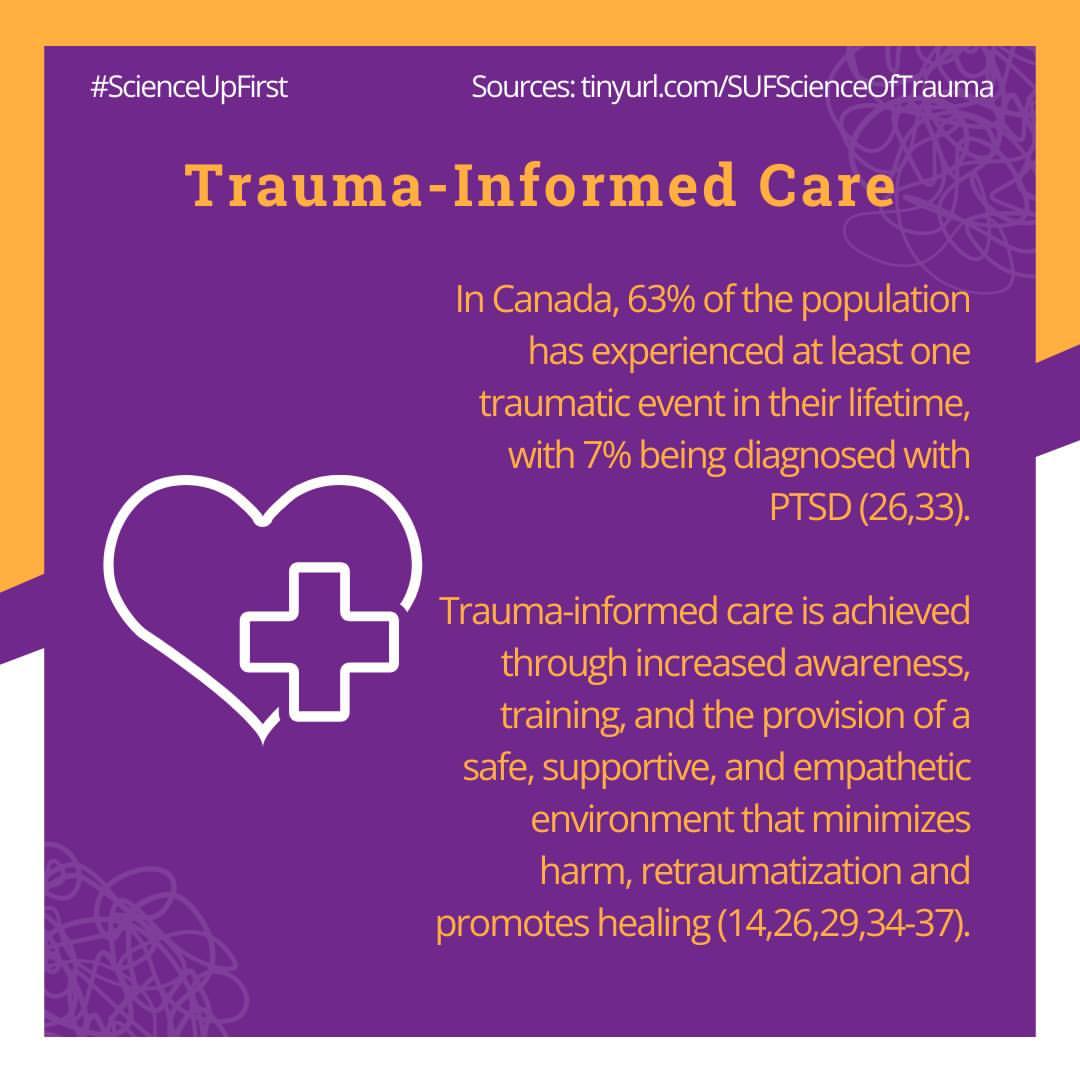
Traumatic events come in many forms and are experienced in unique ways by different individuals. Thus, there is no right or wrong way to experience a traumatic event.
That is also why being trauma-informed can make a big difference when trying to help someone who is dealing with trauma.
Remember that the intense emotional and physical response you might experience after a traumatic event will usually lessen with time. But if you feel like things are not getting better, or are getting worse as time goes by, don’t hesitate to reach out to a mental health professional. They can help you.
Big thanks to CAMH: The Centre for Addiction and Mental Health (@camhnews) for collaborating on this post
Share our original Tweet!
TW: Trauma
Trauma comes in many forms and is experienced in many ways. Thus, there is no right or wrong way to experience trauma.Read the full post to be more trauma-informedhttps://t.co/wokbfiIIyc
Big thank you to @CAMHnews for collaborating on this post#ScienceUpFirst
— ScienceUpFirst | LaScienced’Abord (@ScienceUpFirst) November 29, 2023
View our original Instagram Post!
View this post on Instagram
- Trauma | FR : Les traumatismes psychiques
- Trauma
- Coping With Traumatic Events
- Understanding the Impact of Trauma
- Post-Traumatic Stress Disorder
- About Child Trauma
- Collective Trauma Respond Effectively as an Organization
- Women, Abuse and Trauma Therapy: An Information Guide
- Posttraumatic Stress Disorder | FR : Le trouble de stress post-traumatique (TSPT)
- Post-Traumatic Stress Disorder (PTSD)
- What is Posttraumatic Stress Disorder (PTSD)?
- Stress in America 2023: A nation recovering from collective trauma
- Collective Trauma and the Social Construction of Meaning
- A trauma-informed approach to suicide prevention for the COVID-19 pandemic
- Collective Trauma: Definition, Effects, & How to Heal
- Collective Trauma: Meaning & Implications
- War’s enduring legacy: How does trauma haunt future generations?
- Intergenerational Trauma: What It Is & How to Heal
- Intergenerational Trauma, Dependency, and Detachment
- Intergenerational Trauma and Residential Schools
- FR : Traumatisme intergénérationnel et les pensionnats indiens
- Intergenerational transmission of trauma effects: putative role of epigenetic mechanisms
- A review of epigenetic contributions to post-traumatic stress disorder
- Intergenerational trauma is associated with expression alterations in glucocorticoid- and immune-related genes
- “Psychology Works” Fact Sheet: Coping with Emergencies, Disasters and Violent Events | FR : la façon de faire face aux situations d’urgence, aux catastrophes et aux événements violents
- Buffering effects of social support for Indigenous males and females living with historical trauma and loss in 2 First Nation communities
- Cycle 2: Symptoms of posttraumatic stress disorder (PTSD) during the COVID-19 pandemic | FR : Cycle 2 : Symptômes du trouble de stress post-traumatique (TSPT) durant la pandémie de COVID-19
- What is Trauma?
- The Impact of Early Adversity on Children’s Development
- Trauma and violence-informed approaches to policy and practice | FR : Approches tenant compte des traumatismes et de la violence – politiques et pratiques
- Relationship of Childhood Abuse and Household Dysfunction to Many of the Leading Causes of Death in Adults
- How to cope with traumatic stress
- Helping another person who has experienced a traumatic event | FR : Aider quelqu’un ayant vécu un événement traumatique
- Posttraumatic stress disorder (PTSD) | FR : Trouble de stress post-traumatique (TSPT)
- Trauma-Informed Care: A Sociocultural Perspective
- What is Trauma-Informed Care?
- Trauma-informed care: What it is, and why it’s important
- Trauma-Informed Practice

